European Travels 2: The Netherlands and the Dutch Language
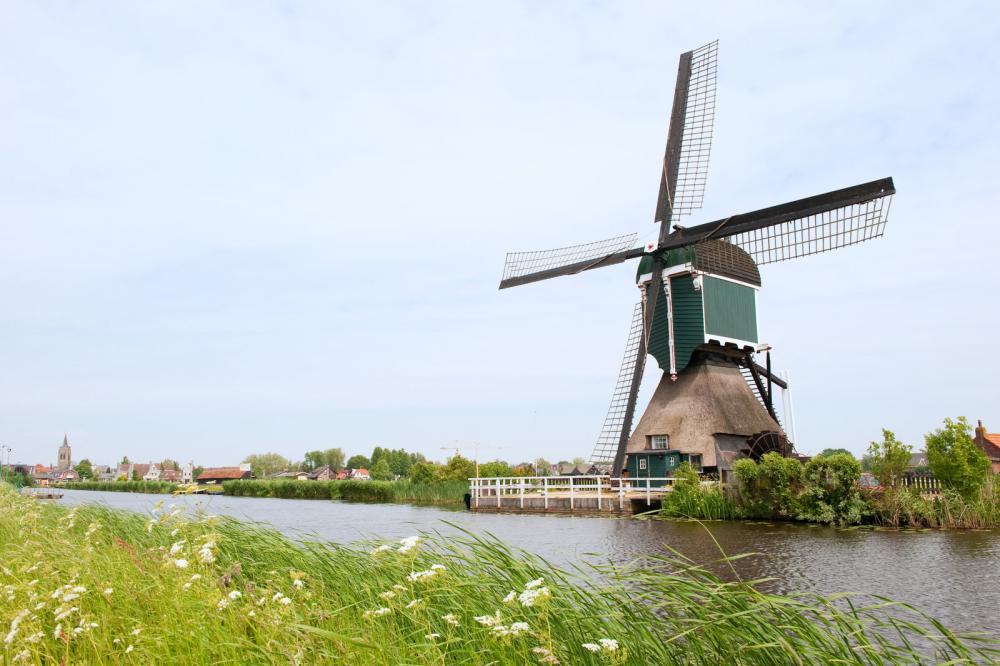 In our previous post, European Travels 1: Rembrandt, Reunion, Dunes, and “Fietsen”, we described a few of our observations in the Netherlands at the start of our visit this year. (Read also about our canal boating trip!)
In our previous post, European Travels 1: Rembrandt, Reunion, Dunes, and “Fietsen”, we described a few of our observations in the Netherlands at the start of our visit this year. (Read also about our canal boating trip!)
The Netherlands is a great country to visit. It has bucolic scenery, picturesque towns, and a rich tradition of art and intellectual life. Plus, there's Amsterdam. Who can beat that?
Most Dutch people speak English quite well, so it's not necessary to speak any Dutch to get around.
Still, knowing a few phrases of the language can be the passport to a more genuine experience of the Netherlands and its people.
Dutch - The Netherlands - Holland
To clarify:
• English speakers may learn “Dutch,” while Dutch people (Nederlanders) speak “Nederlands” or "Hollands."
• “The Netherlands” is made up of twelve (12) provinces, plus three (3) Caribbean countries (Aruba, Curaçao, Sint Maarten) and three (3) municipalities (Bonaire, Saba, and Sint Eustatius), also in the Caribbean.
• “Holland” consists of the two provinces, North Holland and South Holland, therefore just describes a part of the Netherlands. However, "Holland" is often used by German speakers when talking about the Netherlands. Last year's post, 3 Languages, a Pyramid, Napoleon and a Family Reunion, includes a snapshot of Dutch history.
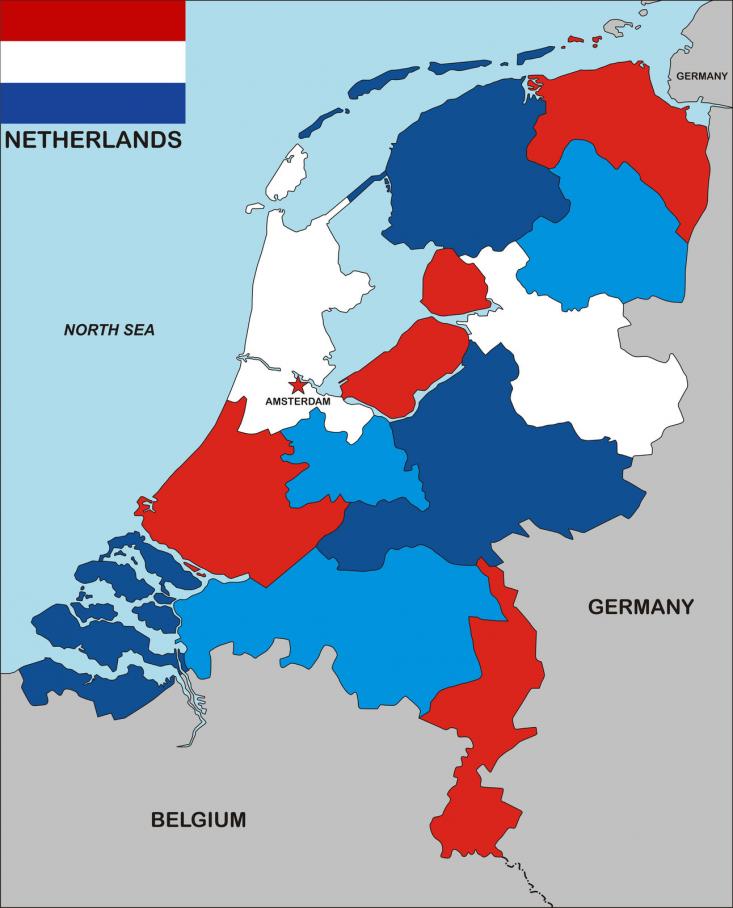 We should also point out, that the new Dutch kingdom, established in 1815, lost its southern half in 1830, when that became part of Belgium. William Z. Shetter in The Netherlands in Perspective describes the reasons this way:
We should also point out, that the new Dutch kingdom, established in 1815, lost its southern half in 1830, when that became part of Belgium. William Z. Shetter in The Netherlands in Perspective describes the reasons this way:
“The North had had centuries of independence and prosperity while the South had been a remote province of the Spanish and later Austrian Empires. The constitutional provision for equality of religion had not changed the fact that Protestantism was dominant in the North and Catholicism in the South.”
Dutch language (Nederlands) is spoken in the Netherlands and in Flanders, northern Belgium, (the Dutch kingdom's former southern half) where the language is called Flemish (Vlaams). Flemish is also spoken in the French region Nord-Pas-de-Calais, bordering Belgium.
Dutch is also spoken in the Republic of Suriname (located in South America, north of Brazil). In addition, Dutch has official status in the three countries and three municipalities in the Caribbean.
Afrikaans, a derivative of Dutch, is one of the official languages of South Africa. Dutch and Afrikaans are mutually intelligible.
Short History of the word "Dutch"
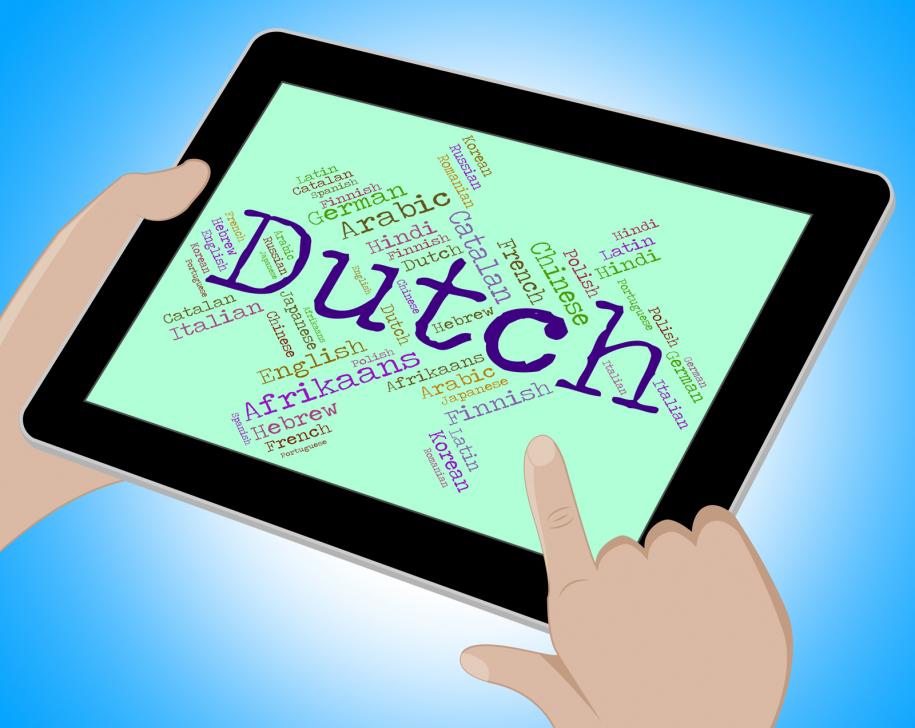 In the Brittanica you'll find this explanation:
In the Brittanica you'll find this explanation:
"In the Middle Ages the language of the regions was called Dietsc, or Duutsc, historically equivalent to German Deutsch and meaning simply 'language of the people,' as contrasted with Latin, which was the language of religion and learning. The form Duutsc was borrowed into English and gives modern 'Dutch.'
The official name of the language is Nederlands, or Netherlandic. In the Netherlands it is also called Hollands (Hollandish), reflecting the fact that the standard language is based largely on the dialect of the old province of Holland (now North Holland and South Holland)."
For a more detailed account of the history of the Dutch language, see https://en.wikipedia.org/wiki/Dutch_language.
Dutch is between English and German
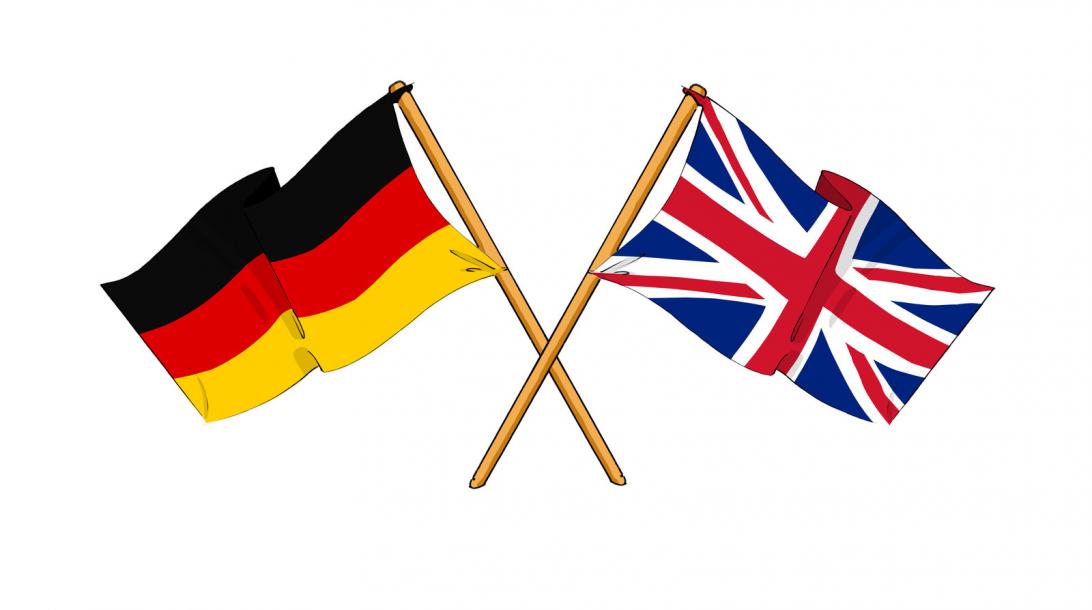 Learning some Dutch is a fun adventure, especially for someone who speaks English and German. This is because Dutch is closely related to both English and German. One could say that it is between them.
Learning some Dutch is a fun adventure, especially for someone who speaks English and German. This is because Dutch is closely related to both English and German. One could say that it is between them.
On the one hand, Dutch resembles English in that it has no umlaut, doesn't use the subjunctive, and does not use case endings for adjectives, etc.
On the other hand, Dutch resembles German in that it has three genders (masculine, feminine, neuter), a similar word order, and uses modal particles (those little hard-to-translate words used in spoken language that reflect the attitude of the speaker). Also, Dutch and German vocabulary often show great similarity.
Below is a sampler. (To learn and practice Dutch words and phrases with audio for free, go to Lingohut.com)
The Numbers 1-14 (English - Dutch - German)
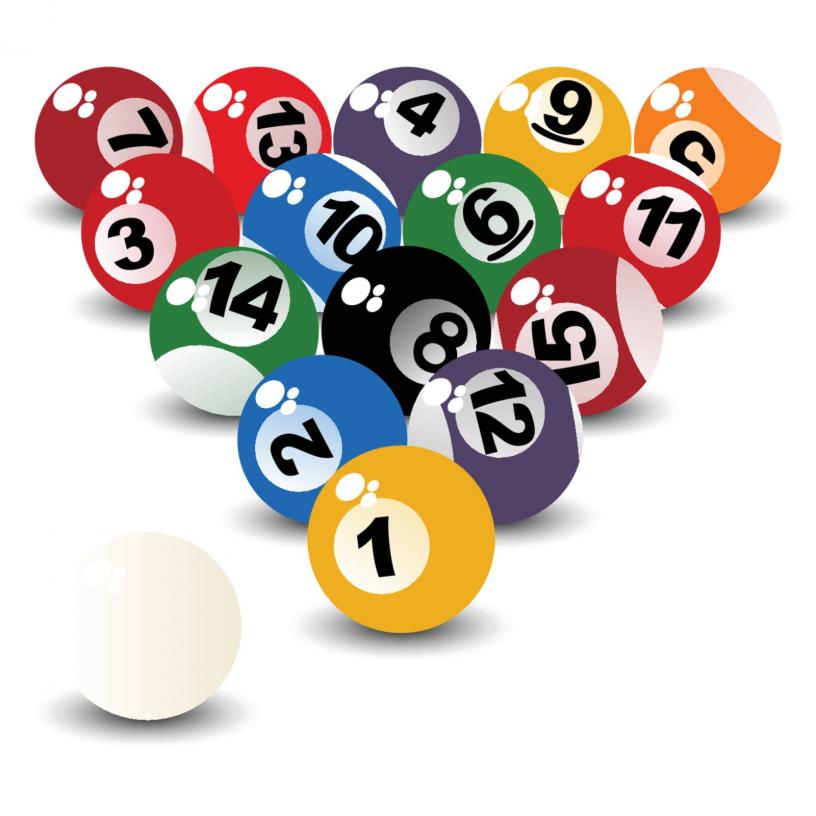
• one, een, eins
• two, twee, zwei
• three, drie, drei
• four, vier, vier
• five, vijf, fünf
• six, zes, sechs
• seven, zeven, sieben
• eight, acht, acht
• nine, negen, neun
• ten, tien, zehn
• eleven, elf, elf
• twelve, twaalf, zwölf
• thirteen, dertien, dreizehn
• fourteen, veertien, vierzehn
Question Words (English - Dutch - German)
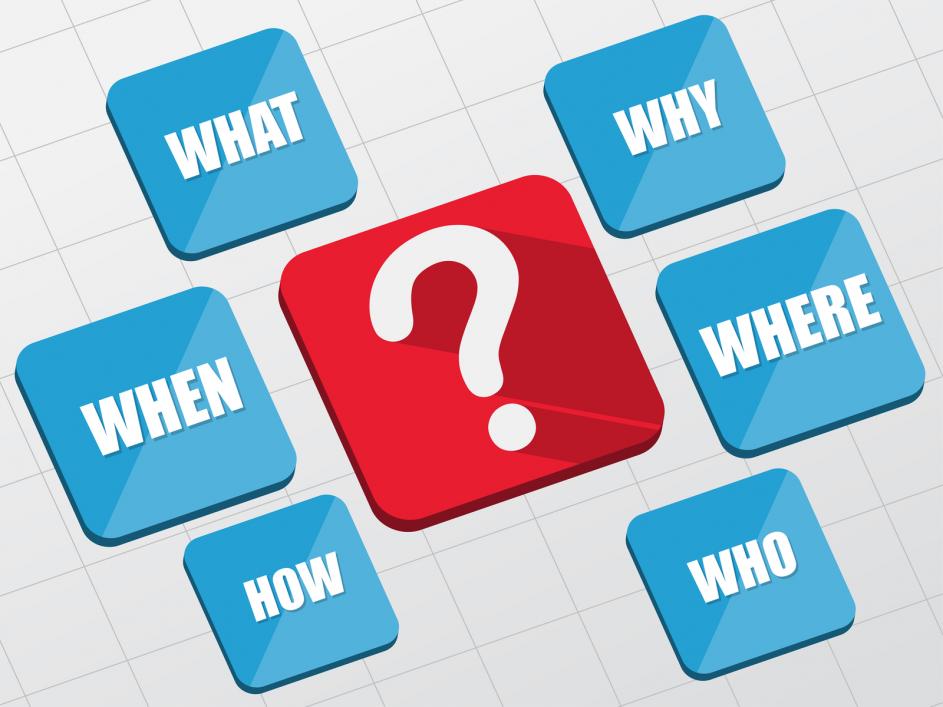 • where, waar, wo
• where, waar, wo
• what, wat, was
• when wanneer, wann
• why, waarom, warum
These two are a little confusing:
• who, wie, wer
• how, hoe, wie
Basic Nouns (English - Dutch - German)
• street, straat, Straße
• house, huis, Haus
• bridge, brug, Brücke
• way, weg, Weg
• money, geld, Geld
• check, rekening, Rechnung
• table, tafel, Tisch
• weather, weer, Wetter
Common Adjectives (English - Dutch - German)
• now, nu, jetzt
• later, later, später
• bad, slecht, schlecht
• good, goed, gut
• small, klein, klein
• big, groot, groß
• new, nieuw, neu
• old, oud, alt
• low, laag, niedrig
• high, hoog, hoch
Dutch Sayings
One characteristic of the Dutch language is that it's full of colorful sayings that are sometimes pretty hard to figure out. But they sure are entertaining. Here are a couple:
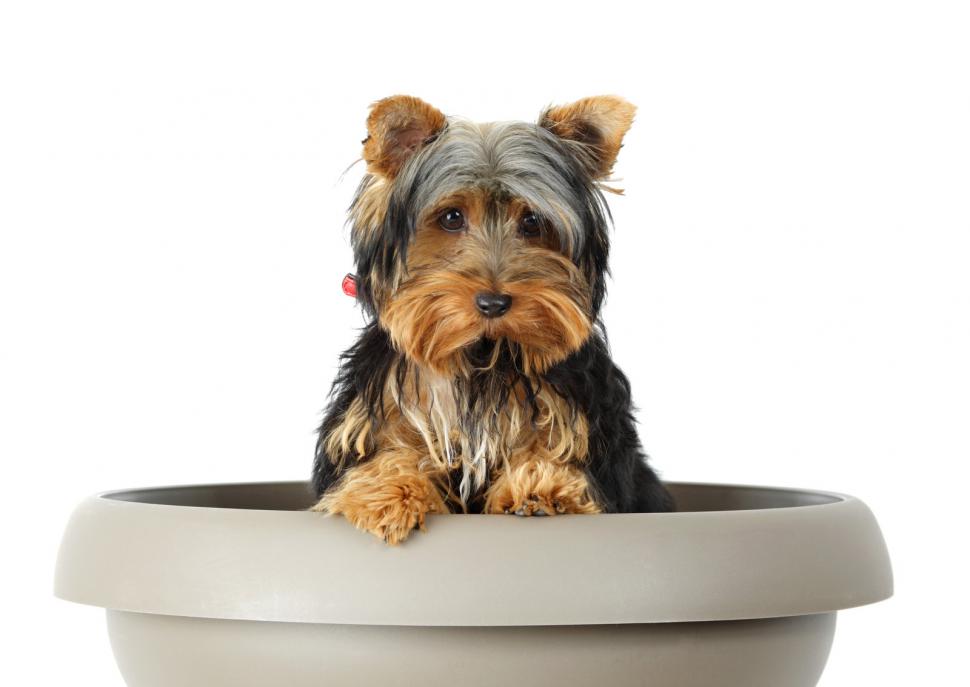
1. De hond in de pot vinden
Literal: To find the dog in the pot
English equivalent: All the food has been eaten
Ze kwam zo laat thuis dat ze de hond in de pot vond.
She came home so late that all the food had been eaten.
2. De aap komt uit de mouw
Literal: The monkey comes out of the sleeve
English equivalent: Truth will come out
Als hij binnekort voor de rechter staat, komt de aap uit de mouw.
When he soon stands in front of the judge, truth will come out.
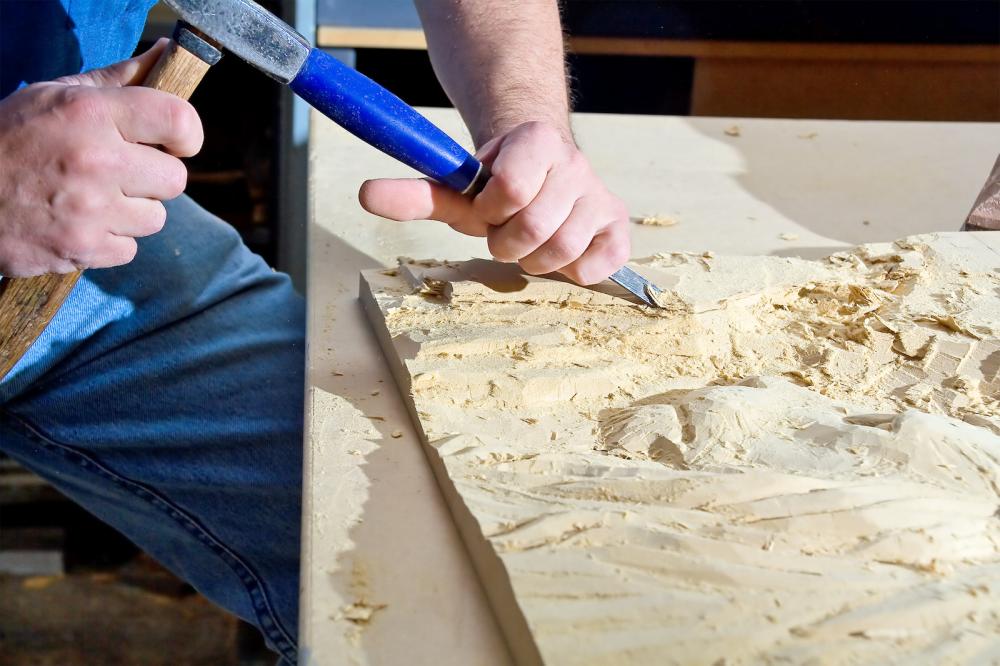 3. Iets op eigen houtje doen
3. Iets op eigen houtje doen
Literal: To do something on one's own piece of wood (or carving stick)
English equivalent: To do something on one's own
Hij is geen groepsmens, hij doet dingen het liefst op eigen houtje.
He's not a group person, he prefers doing things on his own.
What About "Fietsen"?
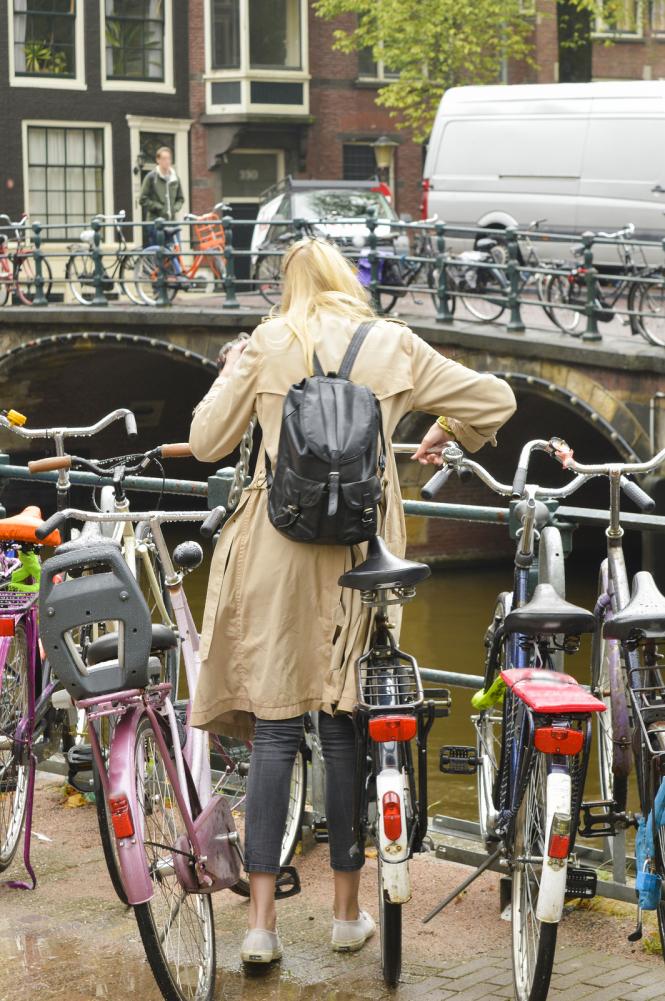 “Fietsen” is a word you may hear a lot, as its seems that everybody does it in the Netherlands: Bikes are everywhere; in Amsterdam, along the canals, on bridges, etc.
“Fietsen” is a word you may hear a lot, as its seems that everybody does it in the Netherlands: Bikes are everywhere; in Amsterdam, along the canals, on bridges, etc.
The words “bike" (English), “fiets" (Dutch), and “Fahrrad" (German) don't seem to be at all related.
The English terms "bike" or "bicycle" are derived from the Greek (bi- "two" + kyklos "circle, wheel"). The German word "Fahrrad" is simply a "riding wheel." Thus, these words make etymological sense.
But, the origin of the word “fiets," so central to daily life in the Netherlands, has long puzzled linguists.
One long-held conjecture was that the word "fiets" was a corruption of the French word "vélocipède" (as "fielsepee") and originated in 1870 in the town of Apeldoorn. (dr.j.devries etymologisch woordenboek, 1973)
Another popular possibility was that "fiets" came from the name of the bicycle merchant E.C. Viets (V pronounced as F).
Or, that it's a corruption of the French word "vitesse" (speed).
Or, that it comes from the southern Dutch word "vietse," meaning "to move quickly."
Most recently, two Belgian linguists suggested that "fiets" comes from the German "Vize-Pferd" (substitute horse) (Linbkhttp://www.24oranges.nl/2012/02/23/etymology-of-dutch-word-for-bicycle-cracked-after-140-years/)
However, the suggestion that "fietsen" is a German loanword was quickly and thoroughly criticized online in the electronic magazine for Dutch language and literature, by the linguist Jan Stroop in his 2012 post, Ga toch fietsen. (The article is in Dutch, but you can easily get a Google translation, which gives you the basic idea.)
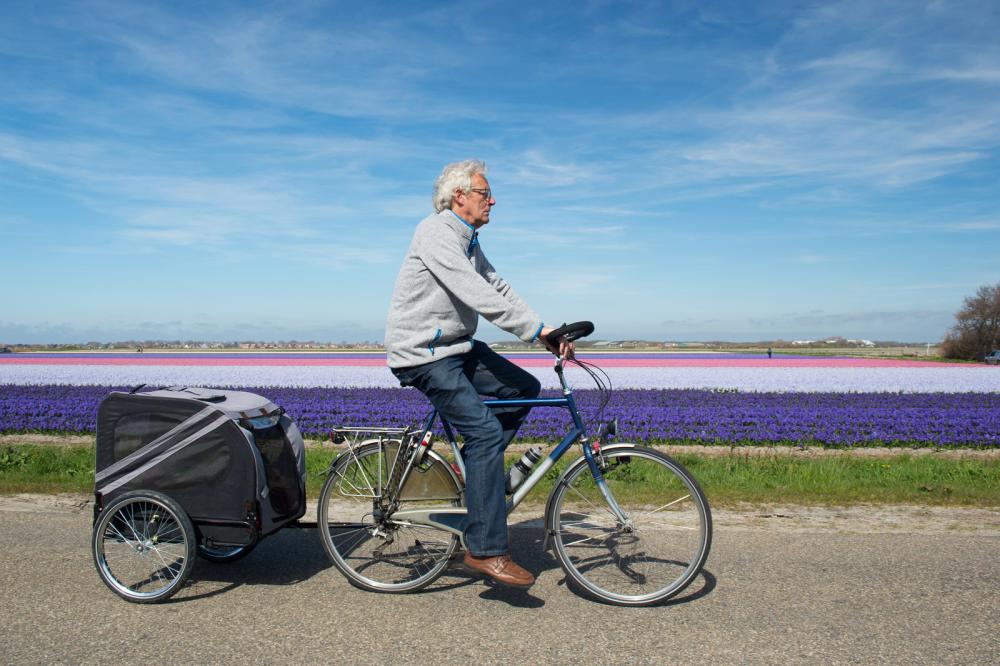 Stroop ends his argument with the sentence: " 'Fiets' een Duits leenwoord? Ga toch fietsen". ('Fiets' a German loanword? - Go take a hike. No Way!)
Stroop ends his argument with the sentence: " 'Fiets' een Duits leenwoord? Ga toch fietsen". ('Fiets' a German loanword? - Go take a hike. No Way!)
For anybody visiting the Netherlands "fietsen" is a must activity. Weaving your way through traffic and busy pedestrian passages may take some practice and not be for everyone.
But in all cities and towns, you'll also find bicycle lanes you can ride on comfortably and safely "Dutch style," sitting erect and leisurely enjoying the surroundings...
Bio: Ulrike Rettig is the co-founder of GamesforLanguage.com. She is a lifelong language learner, growing up in Austria, the Netherlands, and Canada. You can follow her on Facebook, Twitter and Instagram, and leave any comments with contact.
